There’s no getting around it – manure (yes, poop) is a necessary part of farming.
Did you know that manure can actually be a valuable resource for farmers? Managing manure can be tricky, but if done correctly, it can result in some big benefits for your farm.
But that doesn’t mean it’s always easy to deal with! In this blog post, we’ll take a look at some best practices for manure management to keep your operation running smoothly.
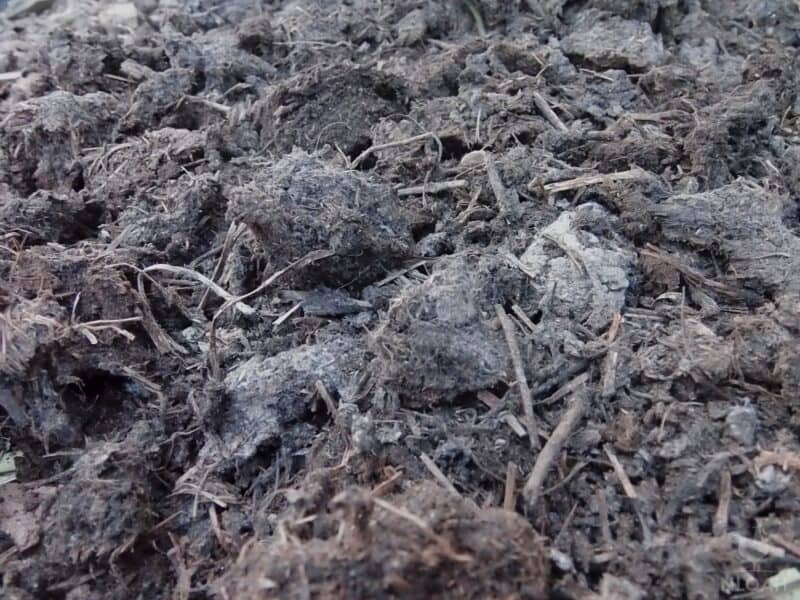
Table of Contents:
What is Manure?
There’s no sugarcoating it – manure is…well, it’s poop.
Cleaning up manure from your animals might not be your favorite chore on the farm, but it’s vital.
While there are certain methods of raising animals (such as pasture rotation) that allow you to leave manure in place on your fields, if you have any barns or living quarters for your animals at all, you’re going to have to shovel poop every now and then.
However, it’s helpful to think of the benefits of manure and all the applications it has on your homestead rather than all the disadvantages (like…it smells).
By coming up with a solid manure management plan, you can help your farm thrive. We’ll discuss this in more detail below!
How Manure Helps Your Homestead
Manure has many applications on the farm, and while you might consider it a major chore to shovel poop, you should do your best to capture as much manure from your animals as possible.
When used in the home garden, manure is a totally free source of vital nutrients that can help your plants be as large, healthy, and productive as possible. You won’t need to buy any expensive synthetic fertilizers at the store.
Manure is a cost-effective, all-natural, and totally free way to fertilize your plants.
When applied properly, manure can also help break up heavily compacted clay soil. It can improve the structure of weak, loose sandy soil, improving soil aeration and increasing the content of valuable microorganisms in the soil.
Microorganisms are vital for healthy soil. Whether it’s earthworms, tiny protozoa, or bacteria, all of these critters love burrowing into manure, helping in turn to deposit fertilizer and aerate the soil.
Ways to Use Manure
Now that you know the many benefits of manure, let’s talk shop – here are a few ways you can use and manage manure on your farm.
After all, using manure isn’t quite as simple as letting your horses, goats, sheep, or cows do their business wherever they please – and then plopping a seed into that steaming hot pile of you-know-what.
No, there are a few steps you need to take in order to harness all the benefits of using manure on the homestead (and to minimize the mess).
Pasture Manure Management
One of the easiest ways to manage manure on your farm is to simply let it sit where it is. Did you know that a beef cow can produce up to 92 pounds of waste per day? That’s a lot of poop!
But if you practice managed intensive grazing, in which you move animals to new grazing areas regularly, you can let it stay where it is. This will encourage healthier plant growth while reducing the potential of manure to run off and contaminate the water supply – or make your animals sick.
Composting
Composting the manure is another top choice. Of course, you’ll have to shovel the manure out of barns and other living spaces in order to do this, but when done correctly, composting can break down the manure and make it usable for your garden.
Stockpiling
Some people stockpile manure so that they can use it later on for their fields. This allows the manure some time to age and also buys you time.
You will need to have a storage spot for your manure that is compacted and sealed – you don’t want manure running off into the groundwater.
Disposal
Of course, you can always shovel that manure out and throw it away -but what good is that? If you absolutely, positively have no use for the manure on your farm,. You can hire someone to take it away.
Manure, particularly well-composted manure, is incredibly valuable to other farmers, and gardeners.
Why Manure Needs to Be Composted
In many cases, manure should be composted. While there are some types of manure that don’t need to be composted (rabbit and sheep are comparatively low in nitrogen and therefore can often be used “fresh” in the garden), all types of manure will benefit somewhat from the composting process, some more than others.
Certain manures, like chicken manure, are considered “hot.” This means that they will burn your plants if they are used directly in the garden.
There are some types of manures that are cold, meaning they don’t have to be composted (though it doesn’t hurt) and others that should never be used in the garden at all, since they can spread diseases and cause serious problems.
The Best Types of Manure to Use
Here are a few of the best types of manure to use in your garden and on your farm.
Rabbit Manure
Rabbit manure is perhaps one of the best kinds of manures out there. Considered a “cold” manure, it is high in nitrogen yet doesn’t burn plants. You can usually use it fresh without having to worry about it killing your plants.
Another benefit of rabbit manure is that it is mostly odorless. Rabbits deposit their manure in pellets, making it easy to sprinkle around the bottom of your plants for a much-needed boost of nutrients midseason.
It can be added throughout the year or set off to the side until you’re ready to use it. Plus, if you use hay as bedding, you can scoop this right up with the manure and use the whole bundle in your garden as a fertilizer and mulch combined.
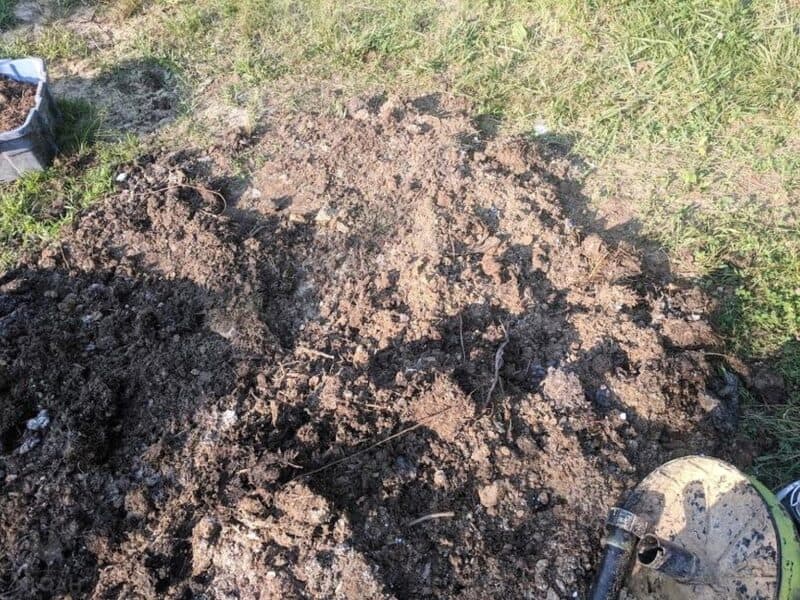
Horse Manure
Horse manure is another popular type of manure you can use in the garden. It can contain some weed seeds, so it’s a good idea to compost it or age it for a long time. It can also be quite stinky, which is something to keep in mind.
That said, aged horse manure (or composted horse manure) is extremely high in nitrogen. Horses have a pretty diverse diet so there are lots of nutrients found in this kind of manure.
Horse poop also works as a wonderful soil amendment since it’s so high in organic matter.
The biggest disadvantage of horse manure is that it tends to attract more flies when fresh, so the flies will lay their eggs there and this can create a never-ending, vicious cycle of fly infestations. Again, composting should get rid of the fly larvae for you.
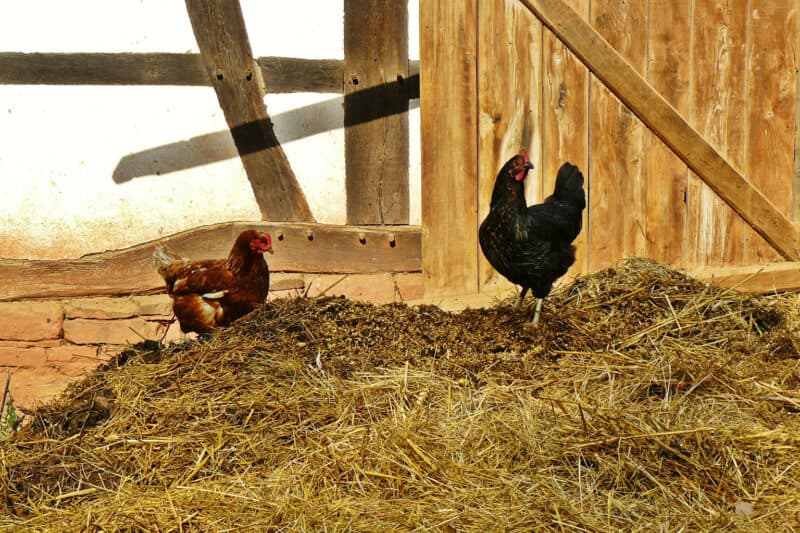
Chicken Manure
Chicken manure is another one of the best kinds of manure to use in the garden. Chickens have a highly varied diet – especially compared to animals like sheep and rabbits – so the manure is incredibly diverse. It’s high in nitrogen, phosphorus, potassium, and countless other micronutrients.
The disadvantage of using chicken manure is that it is one of the hottest manures around. It needs to be composted before you use it in the garden. If you can, compost your chicken manure for at least two months. You can use hot composting to reduce the amount of time it takes for the manure to break down, but make sure you compost it for at least some time.
Many people rely on the deep litter method of cleaning the chicken coop. If you do, you’re in luck – this method makes dealing with chicken manure incredibly simple. You can clean your coop out just a few times per year, then put the entire mess (poop, bedding, and all) into your compost pile.
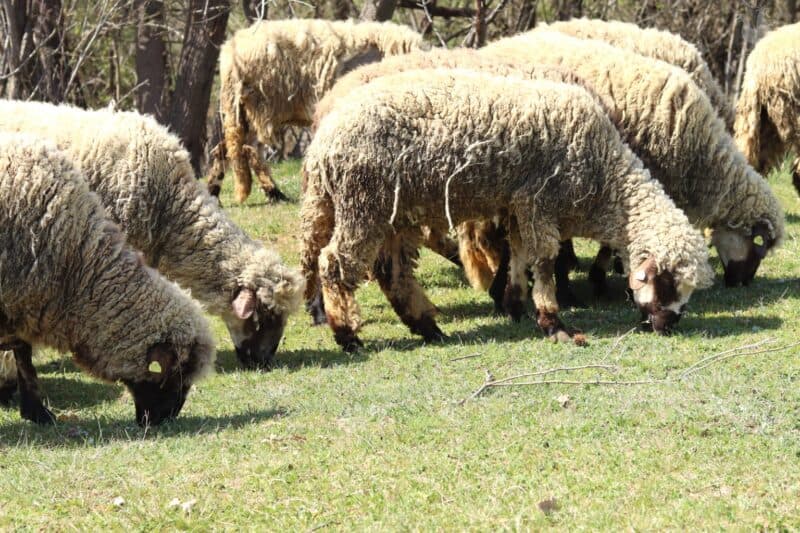
Sheep and Goat Manure
Goats and sheep are similar in terms of their diets and how they break down nutrients, so I’ll list them together in this next section.
Both animals have firm droppings that don’t smell too much. They are easy to apply and, like rabbit manure, it can be used directly in the garden as a cold manure.
The only downside to this kind of manure is that it can encourage weeds. These animals eat mostly hay and grass, so you may find yourself pulling more grassy weeds if you use this kind of manure in the garden.
Often, hot composting can eliminate the weeds issue.
The best way to use this kind of manure is to scrape out the bedding area in the stalls, then compost the material to help break down the urine in the bedding. Again, you can also spread the pellets directly in the garden.
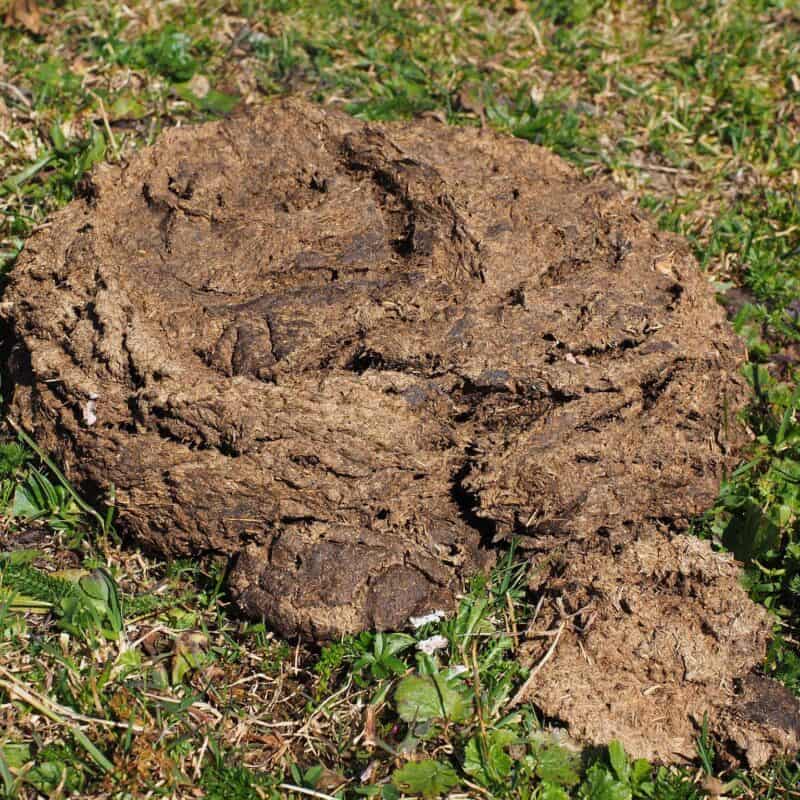
Cow Manure
Another option is cow manure. It is also a hot manure, but it tends to not burn plants as much as chicken manure. Like horse, goat, and sheep manure, cow manure can contain weed seeds – so be mindful of this and be sure to age or compost the material first.
Like horse manure, cow manure is fantastic for adding organic matter. When completed well, the weed seeds will be destroyed. It doesn’t have quite as many nutrients as horse manure, since cows are ruminants who digest their food several times, but it is still pretty balanced.
The Worst Types of Manure to Use
Here are a few kinds of manure to avoid in the garden.
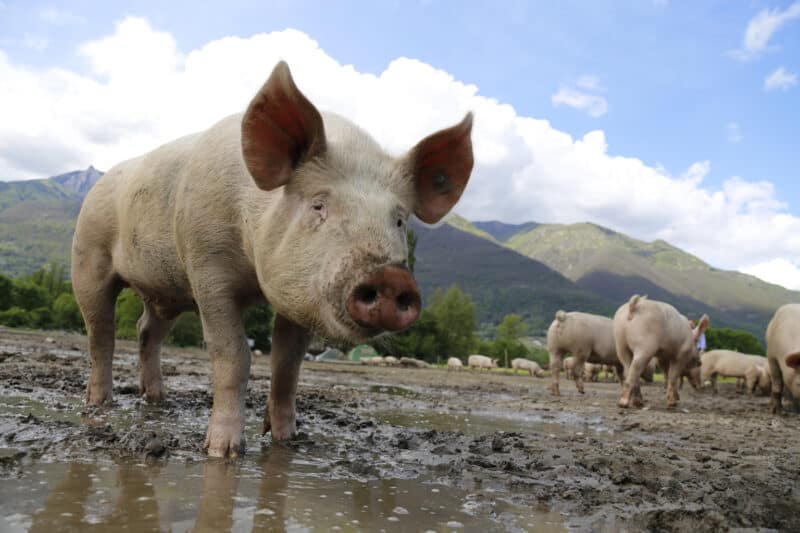
Pig Manure
There are some gardeners who swear by using pig manure in the garden, but I wouldn’t recommend it. Pigs are omnivores that have a higher bacterial load.
This is true of chickens, too, of course, but most diseases that affect chickens are not transmissible to humans – which is not the case with pigs.
Not only that, but pig manure is incredibly hot. You can compost pig manure to destroy pathogens and balance out the nitrogen load, but you should plan on composting it for a long time (a year or two). If you hot compost, you should let it cook for at least a few months.
In any event, I wouldn’t recommend using pig manure (even composted pig manure) on items that are easily contaminated, like leafy greens or root vegetables.
Instead, consider using it to fertilize ornamental plants or non-fruit-bearing shrubs and trees. It can also be used on pastures as fertilizer.
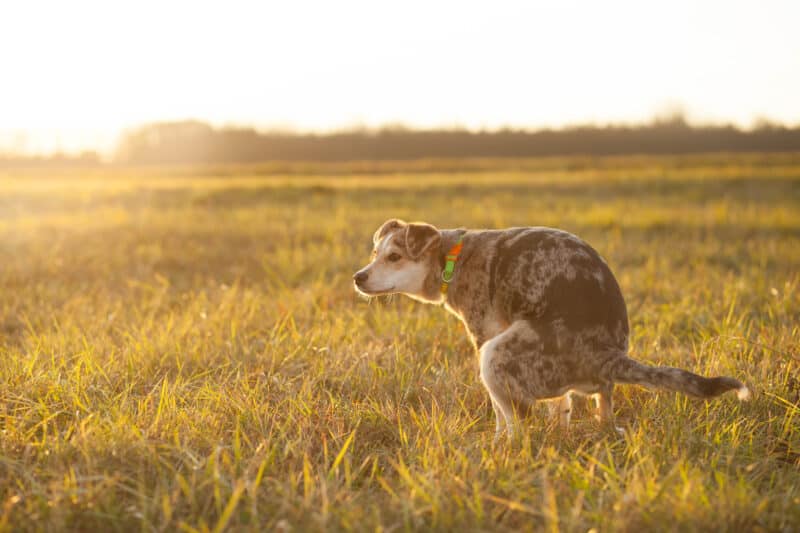
Dog, Cat, or Human Manure
Though not livestock, some people ask whether it’s safe to use dog, cat, or even human (gross) manure in the garden.
All three of these types of mature have no place in your garden. All can spread pathogens to your plants and make you extremely sick. Don’t do it – even if they’re composted.
Common Manure Mistakes
Here are some of the biggest mistakes you can make when managing manure on your homestead.
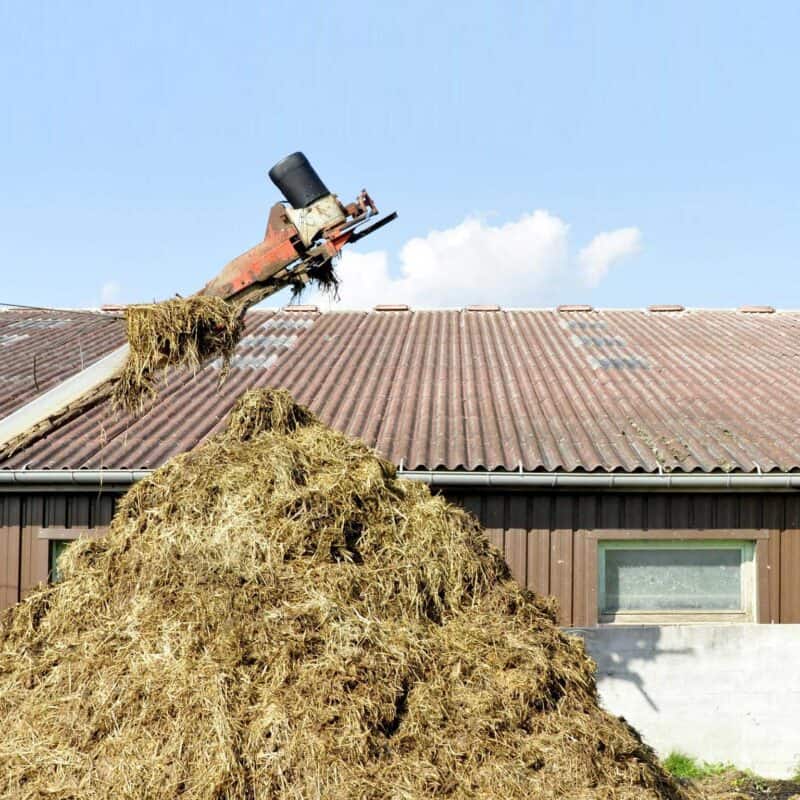
Leaving Manure Piles Uncovered
Manure piles (and compost piles) should be covered. This is especially important if you have a pile of manure that you’re allowing to age before using it in your garden. If you leave a pile uncovered, it could leach into the ground and surface water, leading to problems later on down the road.
Letting Manure Piles Sit Too Long
Compost lasts for quite some time, but you should avoid storing it plain for more than nine months (or two years, for manures like pig manure). Spread the manure before it loses its fertility.
Ignoring Manure Build-Up
This is perhaps the worst manure mistake you can make. Don’t let piles of manure build up in your barns!
Not only can they make your animals incredibly sick, but it will degrade the structural integrity of your barn. Plus, you’re letting all that nutrient-dense fertilizer go to waste by doing this!
Storing Manure Too Close to Water
Be mindful of where you have your compost or manure pile. You don’t want contaminants running off and polluting your water supply.
Spreading Raw Manure
Don’t spread raw manure on your fields unless it’s cold manure – like sheep or goat. Compost the manure first, so your plants have access to the most nutrients and fewest bacteria possible.
Ignoring the Nitrogen to Carbon Ratio
To make the best quality compost out of your manure, make sure you’re adding the right ingredients. Too much carbon is a common problem – so make sure you have a balance in your compost pile.
Where (and How) To Buy Manure
If you aren’t fortunate enough to have your own manure-producing livestock on your farm, don’t worry. There are plenty of other places you can get manure.
Check with any of your friends or neighbors who raise livestock. You can also often have manure delivered from landscaping centers or garden supply stores. Most big box stores like Lowe’s and Tractor Supply sell composted manure, but it can be pretty expensive.
If you check with local farmers in your area, they will be more than happy to sell you their manure. In some cases, they may even give it to you for free (especially if you are willing to pick it up or perhaps shovel it out of the barns yourself!).
However you choose to get it, manure is essential for the health of your garden. As a farmer, managing manure is an important part of sustainable farming, and it can also be a great way to improve your soil health.
By following these tips, you can ensure that your manure management system is working for you and your crops. Have you tried any of these techniques on your farm? Let us know in the comments!

Rebekah is a high-school English teacher n New York, where she lives on a 22 acre homestead. She raises and grows chickens, bees, and veggies such as zucchini (among other things).
